|
12/4/2022 Editor's Remarks Christian Collins CC
Wilfred Bion once wrote that whenever two people meet, an emotional storm occurs. The more of us there are, the more storms to learn and tend our way through. If we can learn from our experiences with one another, if we can be in our bodies and in our hearts when we go through this storm country as complicated people gathered together in a single place (whether Twitter, a train car, the grocery line) then we can find better ways to be together that help soften emotional storms, that usher in a kind of messy and complicated joy. We each have a choice; to make a storm worse, or to soften its edges. Make peace. The accent is on action. To make, to intend peace. To tend towards. Of course, as most of us know, the enactment is easier, safer, predictable. If I know the outcome beforehand then I cannot be surprised by the world, or the people in it. I saw that coming. For trauma survivors, such predictability is paramount. The slings and arrows of life will inevitably trigger old geographies of hurt, of abandon, of abuse. And yet not everything we go through is mere repetition. There is novelty in a wound. Creativity opens a portal through the familiar into the unknown. Once we start from that place, something else begins to happen. We become curious again in the world, in people, their complexity, their difference, their depth, and their limitations, which are also ours. Perhaps there are just as many common threads that run through us as there are stray ones. We can’t know what will happen. And that is scary, and not just for those of us who haven’t had it easy. It feels important to build spaces where we can learn from our experiences with storm-travel, with damaged bonds, and the deep lines etched by trauma. Group therapy feels like a model that ought to be liberated from a single room and into the world at large. Can we bear it? Probably not. Is that a good enough reason to not even try? No. We are called to meet the challenge of so many things in this life that may come to naught in the end. Beckett says; to fail better. To feel our failure, and our hearts opening, in the midst of storm, to reach for the stray thread, that no less than the most common, binds us to one another, to pull on it and watch the known unravel into the unknown. This is hard work. We are hard workers, you and I. Our hearts are on the line. We all come to it late, I’m afraid. The deeper story takes time, the one thing we don’t have much of. We chip away at it, everything that happened to us, until a new place begins to take shape inside of us. I believe we each have a place in the world. A seat waiting for us at the human table. Not everyone does. Believe it. The stakes feel high, because they are. I am not naive enough to think we can all get along, but we can learn how to struggle better with each other, and ourselves, than we do now. Every community I’ve ever been a part of has been fraught with dysfunction: religion, recovery, activism, poetry, we all have our own list. The common thread that runs through them is fear. We are afraid to meet the storms inside of us that allow us to meet the storms inside each other more fully, more freely. Michael Eigen writes, of the dysfunction of his own community, psychotherapy: “I wish I could declare the therapy wars over, but they flourish in new old ways. I wish a prevailing attitude could be that we each make our contribution in our own way, different hands on the elephant, different ways of trying to help. Let’s stop tearing each other down and see what we contribute to the common pool. Society needs more of a partnership attitude overall.” I wish I could declare the literary wars over, but they flourish like the perennial problems that have been with us for so long we can’t even begin to locate their beginning. It’s imperative that there be places where we can meet each other halfway. In song, dance, anger, fear, shame, joy, rage, softness, mercy. A place for it all, and for everybody. Such places are rare and hard to maintain. They are fail-better stations along the way to more. Everytime we check an impulse to overstack someone else’s arms with all the world’s failings, and our own historical wounds, we are learning from experience, holding place in our hearts, and our bodies, for that “deeper well” Daniel Lanois sings about. Ours is a story of failure meeting renewal. A renewed failure? Why not? Some people fail to fail. Is there anything worse than a deluded sense of having succeeded in avoiding life’s slings and arrows? We must take the hits. True believers are mercy warriors. We intend toward mercy. We make peace through our failure to. Isn't that something? What failing-better means is “step into it.” Feel it in your body. Locate it inside your story. And in others. But of course, better to fail together than alone. We are not alone. Here, in this brief moment, our many glorious, embodied failures, our “stumblings toward grace” (Oh EmmyLou) become something more. Shh. Can you hear it? Mercy calling. Hello heart, I know well your voice. And yours and yours and yours. “There are big problems, big world problems,” Michael Eigen writes, “and we have just a tiny little drum. I have this stupid idealistic streak that if you help someone a little bit at least you’re not adding to the damage. And maybe that person will help someone a little bit. But it’s a little bit. I think it’s important not to get too depressed about it but to value little bits… Many more bad than good inside, but the little good objects go a long way. So whatever specks of good there is, honor that speck. We need you to keep working. Most of our personalities are pretty nasty. We want things our way. If you don’t do it my way I’ll wipe you out. But we have little specks of goodness and those specks make a difference… Judaism has a saying, if you save one person you save the world. Pretty dramatic, no? But after looking horror in the face, even Goethe and Voltaire emphasize tending your garden. Perhaps the one person you save will be yourself and that will add to everyone you touch.” Eigen goes on to talk of wanting to give the other a softer voice, of one’s hand going involuntarily to one’s heart when confronted with another’s coldness. Don't you know, I've felt it too. May we each take up our “tiny little drum” and fail our way better into the big world problems. Perhaps that something greater that we sometimes feel ourselves in service to is but each other. Can we hold the rose and appreciate the thorns? Every last one of us is a thorny rose growing-up from the same damn ground. Look around, all these weeds too, us, all of us. The life we save is our own. But it adds something to the garden. It matters. Even with such a tiny drum, and all the pain in the world… that we gather like this, and fail-better, towards our singular, and shared forms of mercy. James Diaz Founding Editor Anti-Heroin Chic 12/4/2022 Poetry By Tyler Michael Jacobs Ben Ledbetter, Architect CC
AFTER CLOUDS, THE TREES RAIN A singing of sirens comes over The neighborhood in which I now live Reminding us to feel The music in this stillness and I try. What I want are these rumbles of hum To spill from windows like the thrill Of light on grass. In at least one of these Homes, someone is either taking Another’s grief or handing their own To someone else. What I mean to say, Every kitchen on this street Has someone dancing in it Or someone finding meaning in living Only half a life. I like to think Of the mother after the divorce And how teaching her son to move His feet in tempo, to hold up his palm, Is a form of sympathy. He learns we hold on to compliments The same way we hold on to the body Of whom we love, clinging, As if to stop the body dying Into itself. She understands loneliness Passes like one hears the moment Between a breath and an exhale. Her hand rests on his shoulder. Softly, perhaps, hard to say If it ever was before. They both close their eyes and step Into a twirl. She cries. He laughs. Both for the first time in three months. Tyler Michael Jacobs is the author of Building Brownville (Stephen F. Austin State University Press, 2022). His words have appeared in Pidgeonholes, Sierra Nevada Review, Thin Air Magazine, White Wall Review, Funicular Magazine, and elsewhere. His poems have also been featured on Nebraska Public Media’s Friday LIVE! He is a first-year poetry MFA candidate at Bowling Green State University. 12/4/2022 Poetry By Maria Hiers cattan2011 CC
my tried resurrection for Amber Heard my past of eroded, bludgeon-eyed. my charges of trophy wife and water works and lilith. his lawyer hocks questions: how’d i rev a combusted convertible? how’d i exit onto highway, headed to cut through desert dust? my past of blood suds and crawling. his bullet had pierced my lung. taking turns, jury members stick their fingers in my hole. my present of thomases. traffic cam footage rolls of when i materialized in an intersection. cars swerved me, piled-up as wreckage. his lawyer says i’m unholy, that i live only because the devil refused me. but beyond was scented of citrus, felt like dancing gin-dizzy. was my few days of untouched. manatee county For my mother beach-side bar. wafting burger-scent, beef’s searing hiss. on the boardwalk, my flip-flops kicked off. me in a bikini, holding a margarita, salted rim. my mom reminds me to shuffle my feet, to discourage the stingrays. i didn’t swim, nervous of currents; saw him fishing, without much luck. nothing biting his worms. how i end up in his truck? where he strips me of strings. asphalt in my knees, zombie-ing towards trafficked street. i was naive, she says, cuffing her jeans to show me scar. what a relief, that she can’t see my heart. Since Jonatan Took the Bus to His Uncreation Montana sheriff: “motel bathtub…shotgun…”. Into windshield frost, you as what I scrape off. Champagne and smoke I subsist on, since. Hear your call from the abyss, when I drive across a bridge. Except I hallucinate, being so starving. Looking at you causes lapse; I scissor your photographs. Like when I fainted, seeing your face on a friend’s fridge. Eating ruins the emptiness, which is all I have/you left. Maria Hiers (she/her) is pursuing her MFA in poetry at the University of Houston. Her work appears in or is forthcoming in Harpur Palate, The Shore, and New Note Poetry. 12/4/2022 Poetry By Maxima Kahn Christian Collins CC
fable if there’s a way to write about it without getting too complex, shifting a word here or there, edging around metaphors, if i could just say i and you, and mean just i and you, without going into explanations, or standings-in, but just to speak truth like a white farmhouse peeling in the sun. not to make a virtue of simplicity, more to give the self, myself, a wide pasture, like opening a corral and letting out into a sweeping field, the whole length of the afternoon, and hardly even a mountain in the distance. as if cookies were baking near an open window, like in the fables, that wholesome smell, a farmhouse window. but this time it’s for real, because i did sit there one afternoon, my car broken down, my old forest-green volvo with the one bright orange fender, on the westminster west road, coming home from cleaning houses down the road, and i waited in the kitchen of a ramshackle white farmhouse, a big kitchen just like you’d imagine, with the chipped metal enameled table. and there was a whole tray of oatmeal or maybe chocolate chip cookies cooling and more baking in the oven, and she said you’ll have to wait ‘til my husband comes in from the field, he’s almost done, she said looking out across the road, and the warm glow of the late light was filling the window and the road and the field out beyond, and i followed her eyes, and there he was atop a tractor bringing in the corn. and she just laughed when her two big rowdy boys came in, snatched cookies off the cooling rack, and while eagerly exclaiming about something, swore, and she said, not really minding, don’t swear. A Different Kind of Breathing Let’s say the core of happiness within, let’s say it’s like a spinning planet. We walk and the planet spins. We sleep, eat, dream, and the planet spins. Let’s say we weep, make love, are torn by fear. The planet spins, always in its constant orbit inside the hollow of our bodies. One day we stumble on it, the spinning, sleeping planet. How it goes and goes, this breathing core. Let’s say we could for once hold all the sorrow and cruelty in one hand. In the other, this living planet, spinning. Like poppies growing on a mound of death. So much a part of all, they offer up orange and pink to the light without shame. A Tibetan monk escaped over the mountains, terror trailing him. Five out of fifty survived. In Madras, unbearably hot, filthy, covered with flies, begging for each meal. Having lost the gleaming mountains, the carved walls of the monastery. Happy. Not from denial nor a hard heart. I’m talking about a way of seeing. When every breath carries with it a wave of joy while the world cries at your feet. And you cry with it. Inside, the planet goes on spinning. Let’s just say I stumble. A kind of despair gutting me. Then something lighter than wind brushes my cheek. Nothing’s changed. But now, it’s as if there are two of me. The one who’s dying goes on dying. And the one who’s living? Well, April follows March, gives way to May, even as December blankets the earth and every cell of this body shivers with cold. Maxima Kahn is a writer, teacher, and firekeeper. Her first full-length collection, Fierce Aria, was published by Finishing Line Press in 2020. Her work has been featured in numerous literary journals, including The Louisville Review, Wisconsin Review, Sweet, and many others, and on popular blogs, and she has twice been nominated for Best of the Net. She has taught creative writing and creative process privately since 2004 and formerly at the University of California, Davis Extension, and she is the recipient of scholarships and fellowships to the Community of Writers and the Vermont Studio Center. She is also an improvisational violinist, an award-winning composer and a dancer. MaximaKahn.com 12/4/2022 Poetry By Alex Tretbar Christian Collins CC
Passengers If anything, life’s too long, like the words of someone on a plane who never knows when to shut up, and all you want to do is watch your city disappear in clouds, be replaced by blue and black, because now it’s night, now you are all that’s awake except for the pilot, whose presence you begin to doubt, for you’ve never seen these patterns of star before, and now, if anything, life’s too short, like the words of someone on a plane who never knows when to wake up, because all you want to do is tell them about the stars. What an Angel Said after Austin T. Holland You better believe it, kid: the arkless sea is also a kind of ark. My grief has endless credit but I blew it all on craps and now my eyes lack coins. I never understood whether heaven-sent meant from or to that bright & high-rent place. Divinate me. At the bottom of every teacup (in the dregs) you’ll find a death’s-head. Tomorrow, you’ll risk laughter when I ascend the compost pile in a huff of regeneration. Next century, I am crowned with a wreath of black dove & white raven feathers. Alex Tretbar won the 2022 PEN America Prison Writing Contest in Poetry, and was a finalist for the 2021 PEN/Edward Bunker Prize in Fiction. His work appears in or is forthcoming from Southeast Review, Poetry Northwest, Snarl, Cobra Milk, INKSOUNDS, and Coal City Review. He lives in Kansas City, Missouri. 12/4/2022 Poetry By Peggy Hammond Christian Collins CC
Navigation What will I say now, this is mine, what once was yours. Sweaters, coats, books, pots and pans, sandals with tired soles. I stand as if in a tinker’s graveyard. Objects in slanted stacks form narrow passages. This to keep, that to give. I have surely lost my way, my candle no more than nub. A dog’s howls brace the darkness, melancholy music. In Virginia, fall’s pumpkins dot fields, a riot of color defying foggy mornings. I could return there, cross that bridge where we stopped, our laughter too loud but happy. I could feel mist on my face again, revel in yellows and reds. But no matter the map, there is no road to where you have gone. The Permanence of Constellations Your cousin. Bedroom. Rifle. Bone fragments. The patterns you. Can’t erase. The sheets you burned. Ash rising. Crisping to nothing. Fireworks. Without splendor. I tried to comfort. But you. You couldn’t be. You. Closed. Off. I understood. Understand. Sometimes I can’t remember the word I want. Cushion. Keys. Separation. Can’t remember how spring eases winter. Do you remember our walks? How we strolled to the park, dusk wrapped around us, a dark shawl. How we curved ourselves into too-small swings. Pushed off hard. Let our toes touch glowing stars. Graze the horizon. Our fingers traced shapes. Big dipper. Little dipper. We let ourselves forget. All the way home, moondust fell from our hair. Peggy Hammond’s recent poems appear or are forthcoming in The Blue Mountain Review, Thin Air Magazine, Spare Parts Lit, The Hyacinth Review, Thimble Literary Magazine, Olit, Club Plum, UCity Review, Heimat Review, and elsewhere. She is a Best of the Net nominee and the author of The Fifth House Tilts (Kelsay Books, 2022). Learn more at https://peggyhammondpoetry.com/ 12/4/2022 Poetry By Terin Weinberg R. Miller CC
ARRYTHMIC DEMANDS I wish your heart’s irregular beat would stop rocking me to sleep. I want you whole in the morning, next to the mulberries, for your organs to agree. I’m jolted awake by your teeth grinding to a fine dust. I want you whole & in the harvest moon’s light. I want to guide you by hand to the bottom of the riverbank. I want you & your blood to remain calm after a tussle with wasp’s venom, but your body boils at mere sight. I want to see you unfold into the breeze, see you build a shadow, a cover that competes with my favorite spruce in the horse’s pasture. I want the echo of your branches to guide me to the grass in beating sunlight, for your sleep talking to say something worthwhile for once. I want your whole heart, all mine, fresh & beating to the tune of my whistle. ALTAR There is no death at this altar, but half of my family is rotten from cancer. Our ashes strewn across golf courses, held hostage in urns, sunk to the bottom of the ocean, are asking for more. The diagnoses are stacking up & my bookshelf is filling in the time. I can’t keep track. I need a place to stow the rot, a place for it to grow. I need all sick organs to be quiet. I’m building a place to pray, an altar without death or loss. I pray without thoughts and prayers. I’m tired of packing up their things: fishing tackle, shotguns, rocks we collected & buffed together, a twenty-year old painting of a mermaid not giving a shit on a beach. I’m here giving them away, giving away holding on to them; seeing them, with someone else’s body. Terin Weinberg earned her MFA from Florida International University in Miami, Florida. She graduated with degrees in Environmental Studies and English from Salisbury University in Maryland. She is a lecturer in the English Department at DeSales University. Terin serves as a reader for Beaver Magazine. She has been published in journals including: The Normal School, Flyway: Journal of Writing & Environment, Red Earth Review, Dark River Review, Split Rock Review, and Waccamaw. 12/4/2022 Poetry By Victoria Ruiz R. Miller CC
Seven Mirrors there i go thinking this was all about my father seven mirrors, 49 years. no reflection, at all did i even look at one of them through the eyes of another? a young man in the mess hall of a ship boystown, the baby blue hull of a floorboard and radio- the harmony a placenta makes while screaming from the stomach of years before the sky began combing itself with satellites in the name of connection there are moments you still belong to me every shape a daughter takes the still-life of a letter four years 11 months zero days no sighting of you absence is not closure but a saphenous vein the longest return i do the math to the decimal point is we look better in photographs rebirthing stories between my brother and me like a trust fall we work the forgotten bones 53 years seven months three weeks and 2 days my mother still waiting at the window for her dead parents to arrive from the scene of a crash that took its survivors, too how the breaking doesn’t make a sound anymore how the womb can spit a man away and a child closer like a ragdoll left hugging the side of a road just beyond a truckstop somewhere in nebraska. the sound a storm drain makes while drowning the deepest thing it's meant to hold again and again i once asked my mother to trim my nails the way she smoothed the edges while sparing the flesh Soft Birds i feel for the bottom of the hill on byrd street in spring a podcast of poppies poke in procession against the blue smoky stucco becoming flowers instead of funeral beds like loose hymns daring the centerline, i have needed you for so long in turn taken to myself asking who will be the curator now the caller, the pages torn from an empty play book the operator through the telephone line making lemons for the sting to come closer killing the voice of your father, in the pitch of the night when you reach for me like you still think i'm here holding softness for you like it’s love like, the shear wooling of hammers and promise every bit of who we were the year you burned the letters i delivered the quietest submission walking braided toward a powerline where the birds sit in chorus something, of a lonely night simple as the weather vain in it’s asking it was all i could hear Beg Me everytime i talk of leaving, i stay tuned for a forecast, a fork in the road, a five o’ clock shadow from a hole that lives beneath your breath say what you want to say be it stay or go i know loving me is a bit like discovering you are a hard-wired eel up a slope where promise becomes a slippery language full of breadcrumb sleeves swept under a rug i sleep best in the rain trust most with my eyes closed have learned to shed the weight of an offer me a part of you an adam’s apple, your DNA give me something untraceable then draw it against a lampshade, the slow grain of a movie reel ticking its tin metal heart at the end of a flick print my body with your painted breath like a tension of bees getting fat with summer give me yesterday back as out first hello tell me you are here with rocks at my window make me shake like a plane landing a snowstorm as you tell me how your father left your mother and what that did to you i want to fit like that through the mousehole you can’t charm your way through while i learn how many steps you have climbed and to where put seeds in my mouth from the field of your dreams and consider what a fever would bring to the pitch because everytime i try loving you i keep running away instead Victoria Ruiz {she/her} is a Minneapolis based writer whose work has appeared in Anti-Heroin Chic, What Rough Beast/Indolent Books, NYWC online journal, Gnashing Teeth, Olney Magazine and Loud Coffee Press Anthology/Flower Shaped Bullet. She was a semifinalist for Button Poetry’s 2021 Chapbook Contest. Forthcoming Anthologies include: When Women Speak and NYC Camperdown. She is a lover of all things music and enjoys dancing in the kitchen with speakers on full-tilt while her dog, Mojo, watches in disdain. 12/4/2022 Poetry By Mary Simmons R. Miller CC
I Have Swallowed the Woods for Lungs and laid woven grasses at her feet, my penance, my question always the same: do you walk with death as I do? I worshiped the woods until she answered me, when I soaked into her, pieces of me burrowing into the knots of trees, coiling alumroot, shivering in the scream of an unseen barn owl. When she began to offer dead moths spread wide-winged and acorn caps and shelter from rain, when she began to pray for me, I lost some part of my name to her, lost the Latin for I am hollow, don’t you see and bless me with all this breathing. I wept in her December arms, numbed myself in her snow, looking up through branches, my voice wanting to know, and knowing: when did I grow so tall? And the Feathers Will Rot, One by One If I say dead bird, was it ever alive to begin with? This permanence the curse of body, this thingness the weight of bone. Lifeless neck is still neck, snapped in reverent prayer, eyes dark and flat, every door closing. On his chest a blooming black that identified him when alive and reminds him of blood, now. He holds his wings close, a last comfort, and tells me you are as real as I am and I say no, I never existed, stop calling in the night I will not answer you. He haunts me only as an after, his words wet and drowning, a stick prodding his left side. I pick plums and feed them to dead birds. When a candle has burnt, the wax pools a dress at its feet, absent flame disrobed. Death comes so often honeyed: fallen pears plump with their sugar, leaves to float and burn in piles, the eyes of a deer laid out at the side of the road. Don’t let all this amber fool you: We were never saints. As a child, I wielded broken branch as scalpel, pried bird from bird body, found softness in the back, between the wings. I do not renounce the found things in my pockets, the sliver of moon I secreted in the sole of a shoe. I do not pray over corpses watching me walk, leaving my morning with this taste in its mouth, all the bitter flowers. Mary Simmons is from Cleveland, Ohio and is an MFA candidate at Bowling Green State University. She is an assistant editor for Mid-American Review. 12/4/2022 Poetry By Laura Tate R. Miller CC
Home is Not a Place I’ve lived in rooms inside houses with walls that shrunk or grew bigger depending on the time of day, the amount of light allowed to peer through tall, lonely windows. Sometimes the rooms became so small I needed to shrink myself to fit inside. Sometimes I needed to walk out the door and find another home. Sometimes, because of strong attachment, I carried the home on my back and it was not easy to get out from under the weight. Today my home is the edge of a leaf and I am small again but no longer worried about doors or walls. Some days the wind is cold and strong and sends me from the tops of ancient trees to the earth, where moss and lichen grow, or even to the yellow lines of highways where I am sleepless with worry and dread, but then a breeze lifts me up again and again and I am dancing. Home is not a place, not a spot on a map, not a name, although I’ve been to that place - I got on a plane, had the window seat, next to a college girl eager to see a boyfriend but nervous about flying. When the plane landed, I wished her well and never saw her again. Her home was called True Love. Location: Indiana. Ah yes. I have been there. The weather is changing. Soon it will be November and dark nights. I’m thinking about a new home. I will name it The Absence of Wind. There’s nothing wrong with the edge of a bay leaf tucked inside a plastic jar, tucked inside a kitchen cabinet, and oh yes, we are talking about a room inside a house. But a bay leaf stays firm and solid immersed in boiling water or cooked under pressure and taking my sweet time with a steaming bowl of soup is just what is needed right now. Laura Tate’s poem, “Requiem for a Young Boy,” was nominated last year for a Pushcart Prize and for The Best of the Net anthology. She has been writing poetry for many years and belongs to a robust poetry group that meets monthly on zoom. She actively participates in the NPR Poetry Facebook page. Laura is a retired elementary school teacher and a grandmother who lives in the D.C. area with her husband and a small orange cat. |
AuthorWrite something about yourself. No need to be fancy, just an overview. Archives
April 2024
Categories |
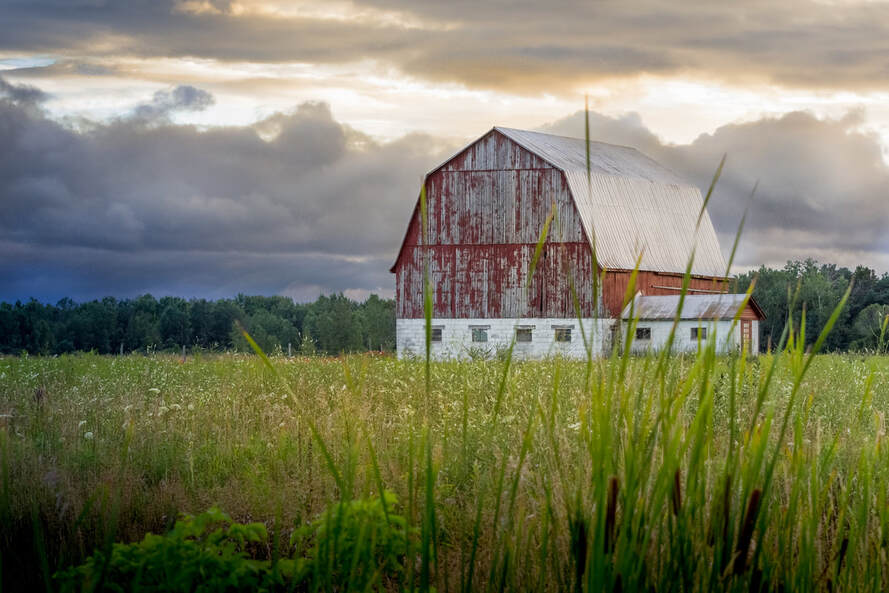
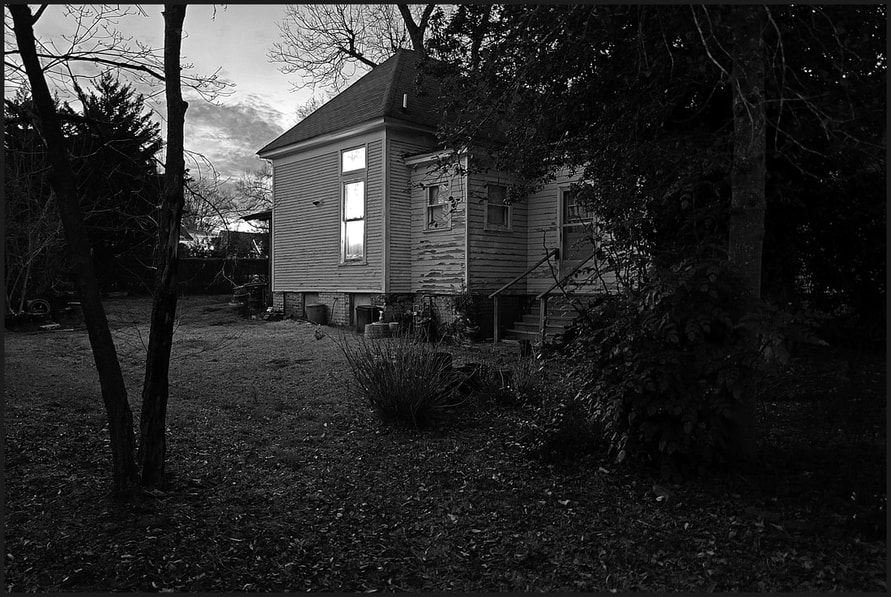

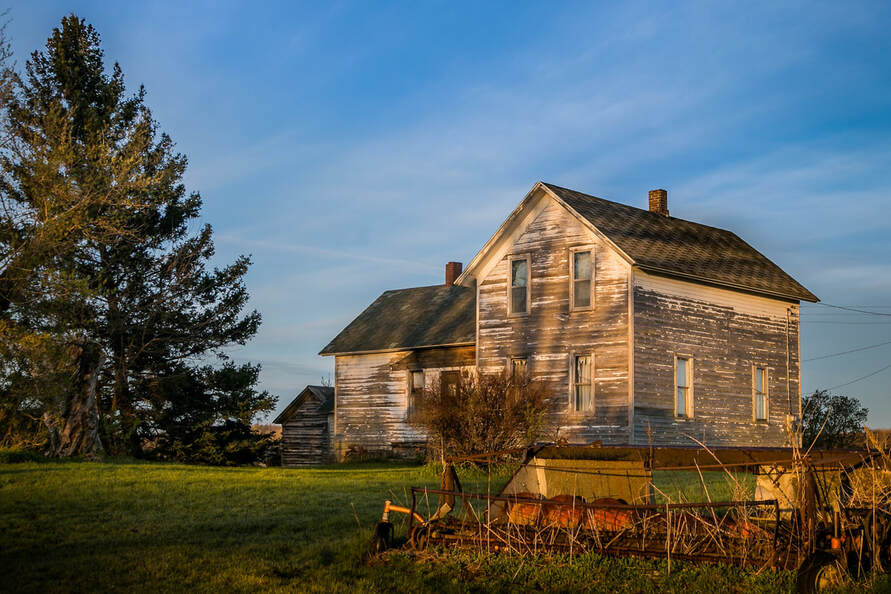
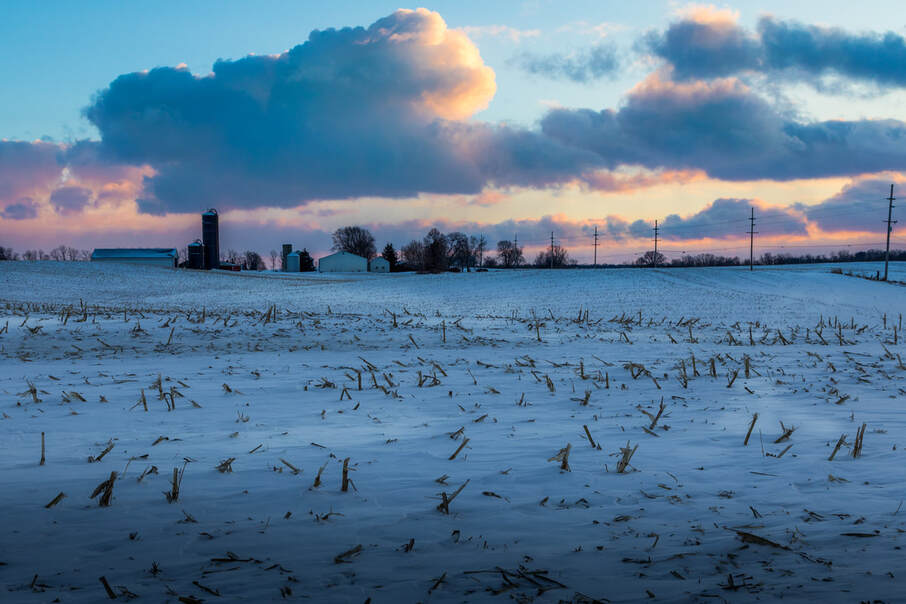
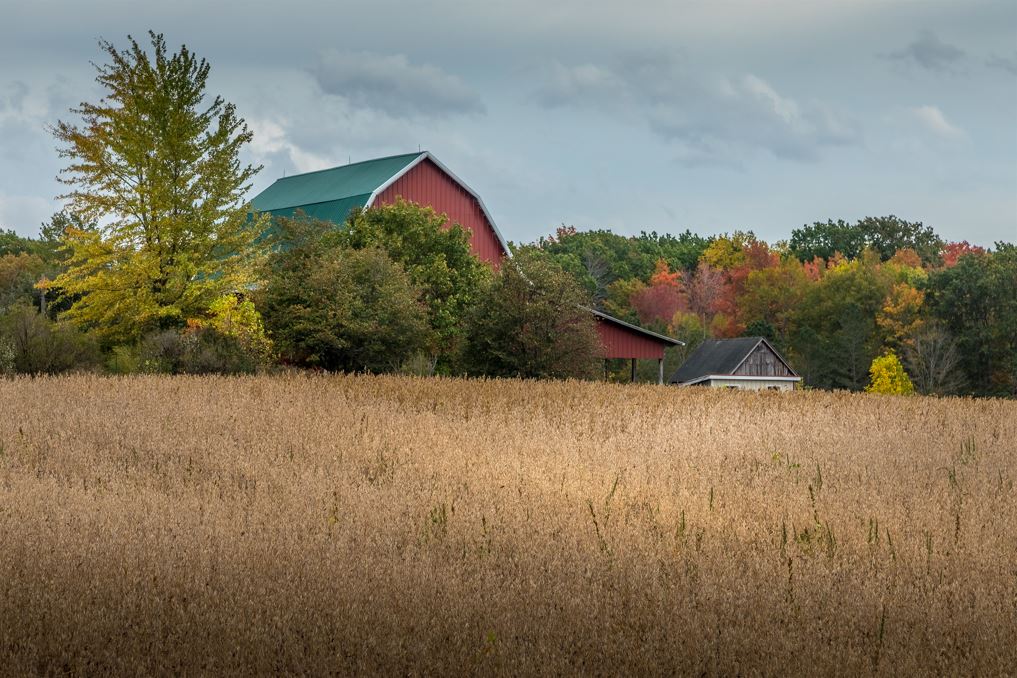
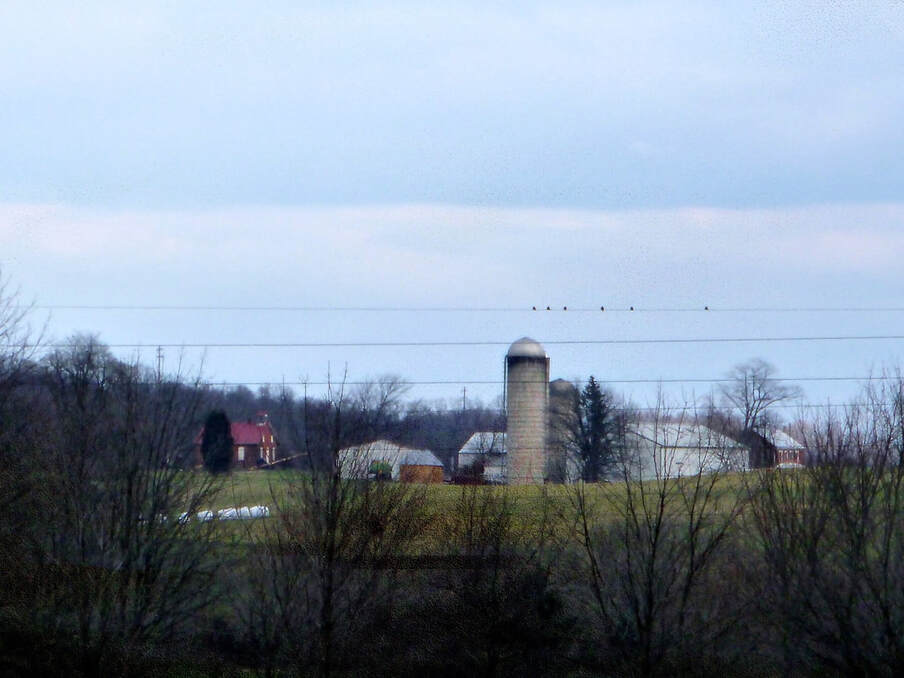
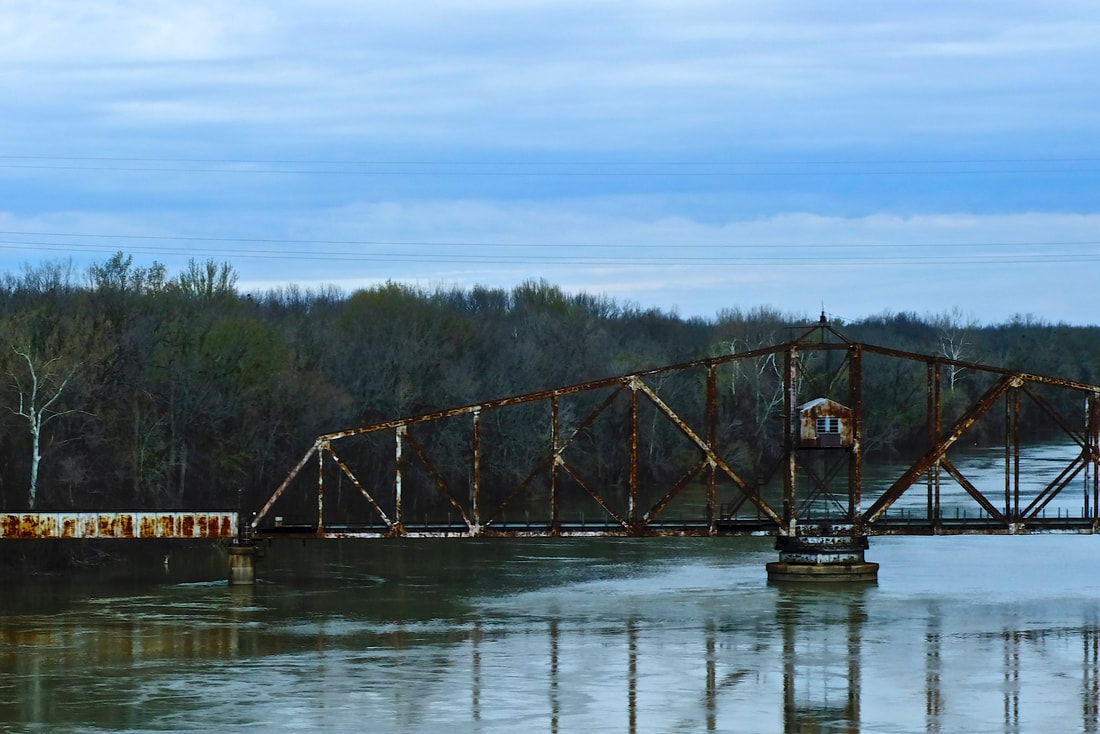
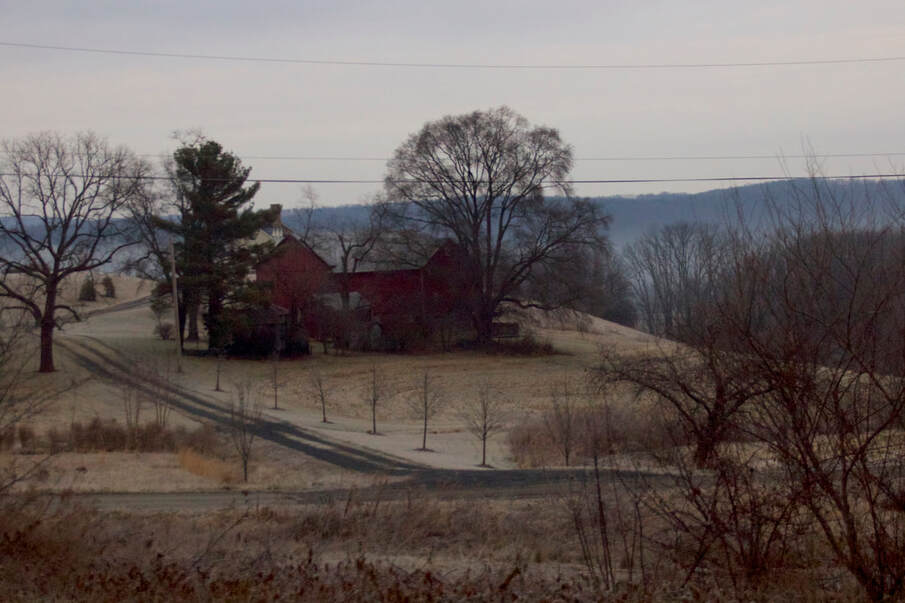
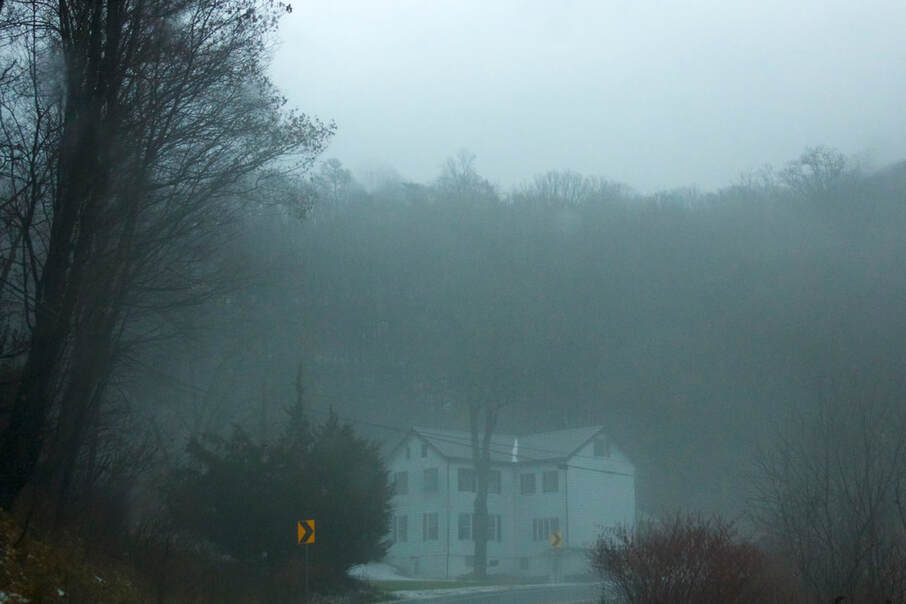
 RSS Feed
RSS Feed
